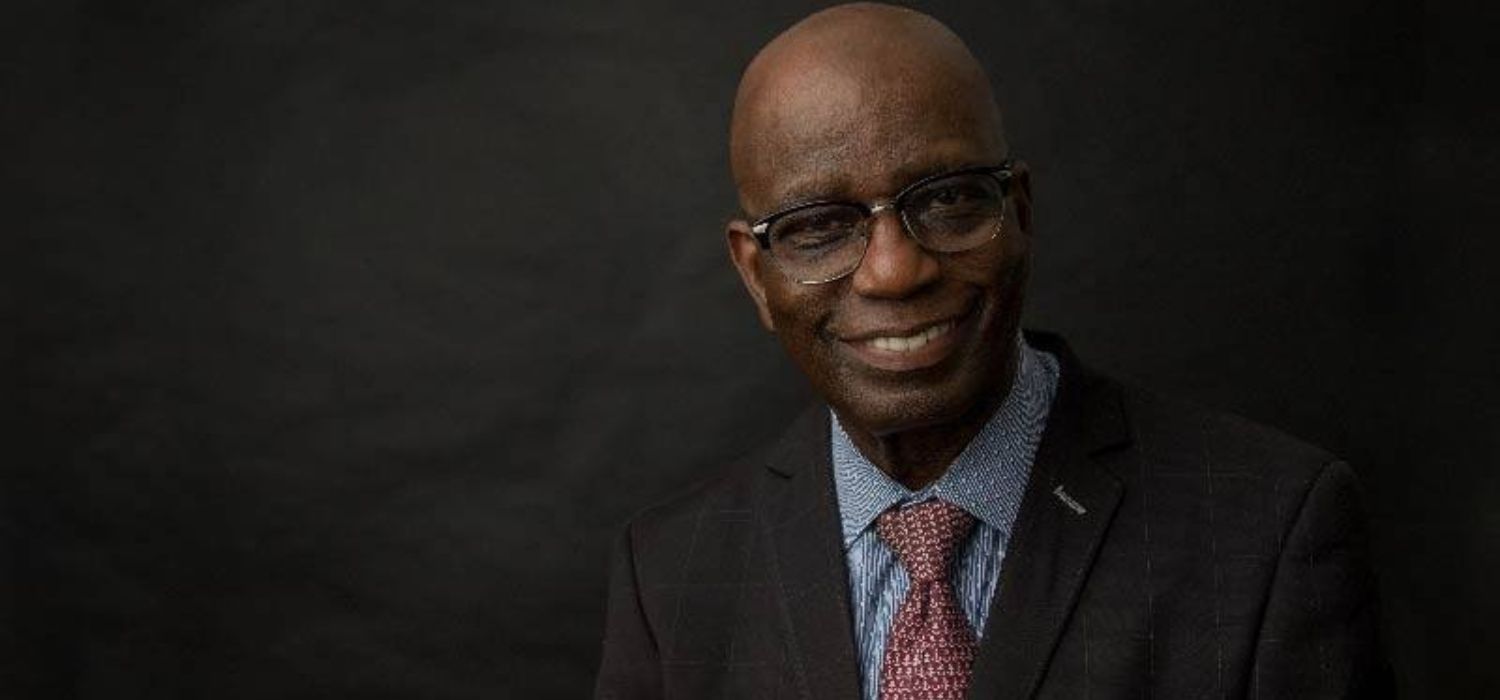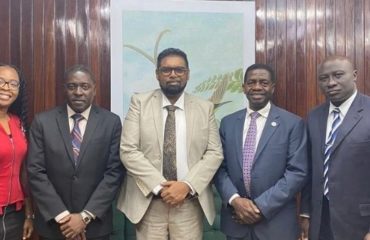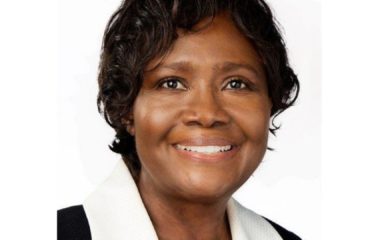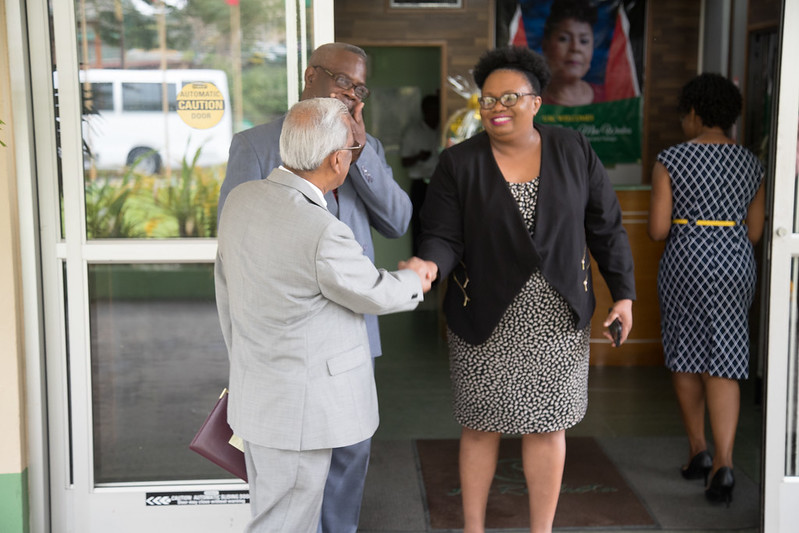By Hayden McKenna
This is the first of a series of feature articles that will focus on matters of leadership. The series coincides with the recent establishment USC Leadership Academy (USCLA).
Leadership is one of those buzz-words in the jargon of management, governance and political studies that never gets old or goes out of fashion, despite its quality of occasionally being fodder for trite cliché and worse even, spectacular mal-practice. From Niccolò Machiavelli’s The Prince with its schizophrenic motif of the fox and the lion, to the pessimistic literary offerings of George Orwell in Animal Farm, or William Golding in Lord of the Flies, to the brighter more hopeful contemporary works of a long list of other mostly Caucasian males like Peter Drucker, Sidney Finklestein, John C. Maxwell and Simon Sinek, leadership remains a global preoccupation of the well-read and the ambitious. The narrow cultural immanence in the literature on leadership is obvious to the conscious and critical eye. So too is what is perhaps a misogynistic skepticism about the true potency of feminine leadership, if one reckons it by the loudest voices in the room and among the proclaimed pundits and gurus – pardon the non-western monikers for the experts. The case for a richer democratization and more cultural diversity and gender inclusivity in the epistemology that supports how we learn about, practice, present and represent leadership is not difficult to make. Think deeply about what is commonly accepted and available to you on the subject of leadership and you most likely would agree.
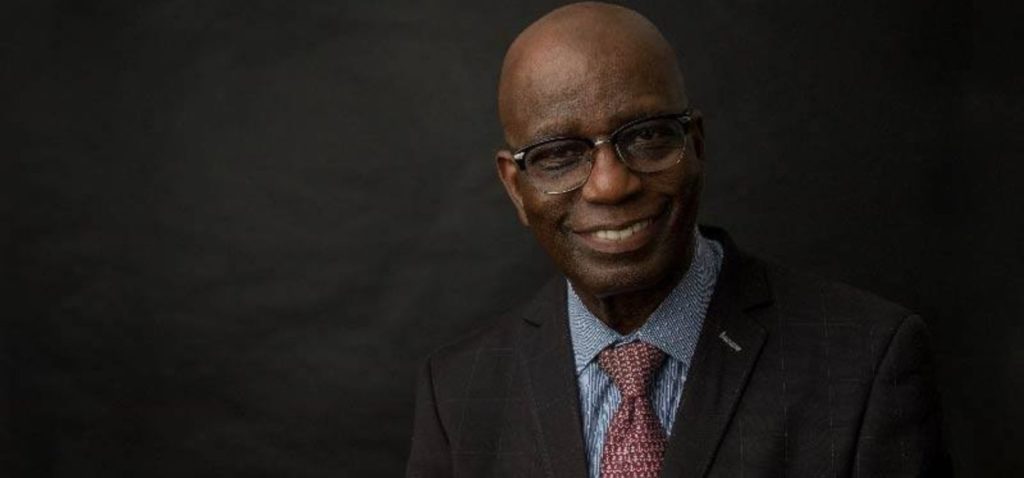
As the University of the Southern Caribbean approaches its centennial, there is, or should be, a collective consciousness that our remarkable progress and our missed opportunities too, cannot be disentangled from our leadership culture and praxis. This claim does not have a selective adhesive that attaches solely to the 2 women and 27 men that have been our Presidents. Good and progressive organizational leadership must percolate to and be fed-back from every capillary and cell of the organizational anatomy if the organs, limbs and systems are to resist atrophy and necrosis. Leadership and conscious leaders exist and must be recognized, equipped and empowered to exist, thrive and multiply throughout the University. The success of the second 100 years depends on it.
On November 10, 2023, the USC Leadership Academy (USCLA) was launched. The keynote address for the opening of the USCLA was delivered by Dr. Leon Wilson, an illustrious alumnus of CUC/USC’s Class of 1974. Dr. Wilson has had a long and distinguished career that has included positions of leadership in the Seventh-day Adventist Church, where in his native Guyana he served as a Pastor and District Leader, an Associate and full Departmental Director and rose to the position of Executive Secretary of the Guyana Conference. After migrating to the United States, he continued to practice ministerial leadership pro-bono as a volunteer pastor of two churches for almost four years.
As a career academic, Dr. Wilson has served in various leadership roles in several universities in the United States of America, including Wayne State University, East Carolina University, Alabama State University, Tugaloo College and Morgan State University. His varied roles have included positions as Teaching Faculty, Departmental Chairperson, Vice Presidencies in several portfolios, Provostships, and an Interim Presidency. Dr. Wilson also has the permanent distinction of being the first person to be designated as Provost of the University of the Southern Caribbean. Dr. Wilson has also served on several committees and boards and was President of the North America Alumni Association of the University of the Southern Caribbean for three years. In his own words, he carries a “heavy bag of leadership experiences.”
I recently had the privilege of having an extensive conversation with Dr. Wilson on matters of leadership. We explored leadership in the field of academics, in the church, in Caribbean society and how its practice continues to evolve in the face of 21st century needs and challenges.
Good leadership for Dr Wilson, “inspires people, good leadership encourages followship, good leadership is also being a follower… Good leadership develops others…if you are simply leading, at some point what happens is when you are gone the influence disappears. A good leader is a person who develops a legacy. That legacy involves moving people along and making them better than when you found them…The legacy of good leadership is that there are people who can carry on what you have started but more so, they innovate because you have taught them to do that.”
In recalling his preparation for leadership, Dr. Wilson hailed the example of leadership displayed by his mother and aunt in his formative years. His mother was up to the challenge of managing what he described as a household of “plenty boys, one girl and grandfather”. Later in his childhood, he lived with an aunt who served as a midwife for an expansive district in Guyana, in an age in the Caribbean where the rite of ‘cutting the navel-string’ was a very highly esteemed badge of honour. Dr. Wilson said that observing how these two women managed their responsibilities, offered him early preparation for his future role as a leader.
Church work was another valuable source of Dr. Wilson’s personal preparation for leadership. For Dr. Wilson, some of the lessons learnt and skills honed as a young Pastor, Director and Administrator in the Guyana Conference of Seventh-day Adventists, were valuable and transferable to other challenging leadership contexts he encountered in his accomplished academic leadership career.
Important too in building his leadership aptitude and confidence was his fortune of having good mentors. As a young post-graduate student at Andrews University in Berrien Springs Michigan, USA, he came under the influence of Dr. Sakae Kubo and Dr. Walter Douglas. The latter – perhaps because of his Grenadian Caribbean heritage and iconic CTC/CUC/USC status as one of our most distinguished alumni, Dr. Wilson fondly referred to as “our man there” and said, “We watched him operate in an environment where he was very singular as a black person…We learnt a lot from him. The way he related to people inspired me. The way he conducted his classes, built leadership capacity… He was a champion in his own right and a good example to many of us younger people.”
Dr. Wilson also recalls that when he was elected as Executive Secretary of the Guyana Conference in the early 1980s, he was one of the youngest Conference Administrators in the world church. He considers the mentorship he received from seasoned Administrators like Pastors Samuel L. Gadsby and Peter J. Prime of Trinidad and Tobago, and his own Conference President, Pastor Gordon O. Martinborough as invaluable.
Receiving and offering mentorship is in Dr. Wilson’s view, an important aspect of the preparation for and practice of leadership. Dr. Wilson himself has been an inspirational mentor to many.
As a leader in academia, his passion to develop people has also made him a reagent in advancing the careers of many who he has served as leader. His collegial approach intentionally emphasises the value of people and the ideas and contributions can bring to the table when rightly exposed. His fidelity to valuing people, their ideas and their contributions even extends to when their views are at variance with his own. This orientation has allowed him to cultivate other successful leaders everywhere he has been.
Dr. Leon Wilson is persuaded that leaders in academia and elsewhere, blunder badly when they see themselves as bosses and suppressors of dissenting views. Academic leadership for Dr. Wilson is a position of privilege and not of power. “People who last, are not bosses” he says. Leaders should be humble enough to concede that they do not have to have all of the answers all of the time and they are not omnicompetent. Leaders must recognize their limitations. They are not gods. They must practice sincerity and be willing to admit responsibility when things do not turn out the way they are supposed to.
The perspective of the led and how they are evaluating the journey, is valued by the good leader, even when it is not pleasing to the ear. Good leaders are great listeners. For Dr. Wilson the great leader “intentionally orchestrates involvement” and is not intimidated by the sight, sound or smell of talent, abilities and expertise in others.
Dr. Wilson contends that leadership acumen in academia, is best developed through incremental climbing as opposed to leap-frogging. Leap-froggers are robbed of valuable learning experiences on their way up. They are typically impoverished of quality opportunities to build relationships and empathy with others they are responsible for. Leap-froggers often fall prey to insecurities when confronted with criticism and even constructive ideas, coming especially from persons they jumped over in their sudden flight. This insecurity sometimes manifests itself in rank-pulling. Academic institutions best develop leaders, by rewarding contributors with a path to incremental climbing.
For persons aspiring to be leaders, Dr. Wilson warns that being overly critical of their present leaders probably will not abet their ambitions well. Careful to draw a distinction between helpful critiquing and being unhelpfully critical, Dr. Wilson said “if you aspire to leadership, my counsel is always to take the best that everybody can give and create your own mosaic. There is nothing like a perfect leader”.
With respect to the challenges faced by higher educational institutions – particularly private Seventh-day Adventist institutions (like USC) in the so-called developing world), challenges that seem to have escalated in the wake of the COVID -19 pandemic and its aftermath, Dr. Wilson candidly argues that our present model requires re-examination and renovation. He expressed that if our church sincerely values all of the counsel of Ellen G. White on the matter of education, then the oft-repeated statement that “the work of redemption and education are one”, should trigger a sea-change in the way our church distributes its finite financial resources so that Mrs. White’s good counsel and the equivalency there embedded is truer than mere rhetorical elegance.
On the matter of the struggles our church is having with attracting and conserving young people and the leadership issues that arise therefrom, Dr. Wilson agrees that some of our approaches require change. A better theological balance needs to be struck between our sermonic preoccupation with apologetics on the one hand and contemporary pragmatism on the other. Greater attention is needed to addressing the needs of our young people in ways that connect organically and meaningfully with their present circumstances. He says that “a lot of our pastors do not recognize the time in which we are living” and argues that “there has to be a change in the leadership profile of the pastors”. Referencing Jeremiah 6:16 and its counsel to look for the old paths and walk therein, he opined that this passage and others like it, might be a possible basis for some pastors resisting the urgency to minister to our young people in the context of their time, Dr. Wilson says that he is giving mental attention to the traditionalist hermeneutic around such passages of scripture that may stand in the way of greater pragmatic perspicacity in how our church ministers to our endangered youthful population. Scripture also enjoins us to knowing the times he argues and a balanced blend of searching the old paths with knowing the times can result in “ministry that speaks to everybody”.
Our conversation then turned to the question of leadership in our post-colonial Caribbean reality. Most of what academic literature presents about leadership, is based on a quite narrow stream of knowledge that comes primarily from research and writing done in the United States of America and the United Kingdom over the last 120 years. In many ways our cultural realities in the region are quite different from those of the US and the UK. Short of a re-invention of the wheel, there is room for more indigenous epistemology, research and approaches to leadership, rooted in our unique historical and cultural contexts. For Dr. Wilson, an inversion of the plantation pyramid inherited from our colonial past is necessary. The master-servant binary which still influences how we view and practice leadership is a stubborn obstacle to our progress. According to Dr. Wilson, “We were trampled. We were nobodies… The leadership we have been exposed to is a model where there is some big-shot up there that we look up to… It’s a model that is top-down. It’s a model that everything flows from somewhere on-high and rains down on the lower mortals. You need to invert that concept.”
Dr. Wilson, the Sociologist, argues that we need – now that we have the opportunity – to craft leadership approaches that better serve our collective good. The urgency of doing so, found cogent inflection in two rhetorical questions he posed: “Who is getting the bigger share of the oil in Guyana? Who is getting the biggest share of the oil (resources) anywhere in the Caribbean?”
On the highly topical matter of some of the unique challenges confronting 21st century human civilization, such as the rapid growth of AI, a gilded democratization of the power to publish and consume content in cyberspace (accompanied by the conspicuously undemocratic control of ICT by huge, rich trans-national private entities), the planned obsolescence of the universe in the service of the metaverse and multiverse and the inability of philosophers and ethicists to keep up with it all, Dr. Wilson, while conceding the redoubtable threats, prefers to focus on the wealth of opportunities. He argues that our young people – as natives of this age must be entrusted with greater leadership responsibilities to help us navigate through these dizzying times and find the answers we need, if we are not to be left behind. On this matter he expressed a special concern for our church institutions and their capacity and will to rightly harness the leadership value our young people can bring – especially now.
Finally on the matter of the establishment of the USC Leadership Academy (USCLA), Dr. Wilson thinks that “it is a fantastic idea”. He expressed that the USCLA will help to grow talent internally. It will help to keep good people employed at USC and in the region. Young people can now see a path to rising to top positions of leadership at the University without necessarily leaving the institution and the region in search of opportunities for personal and career growth. “I believe it is a very very good step in the right direction… The Leadership Academy is a good thing. I hope it is sustained …and we get some solid leaders out of it”.
Stay tuned for part two of our series – Leadership matters!

